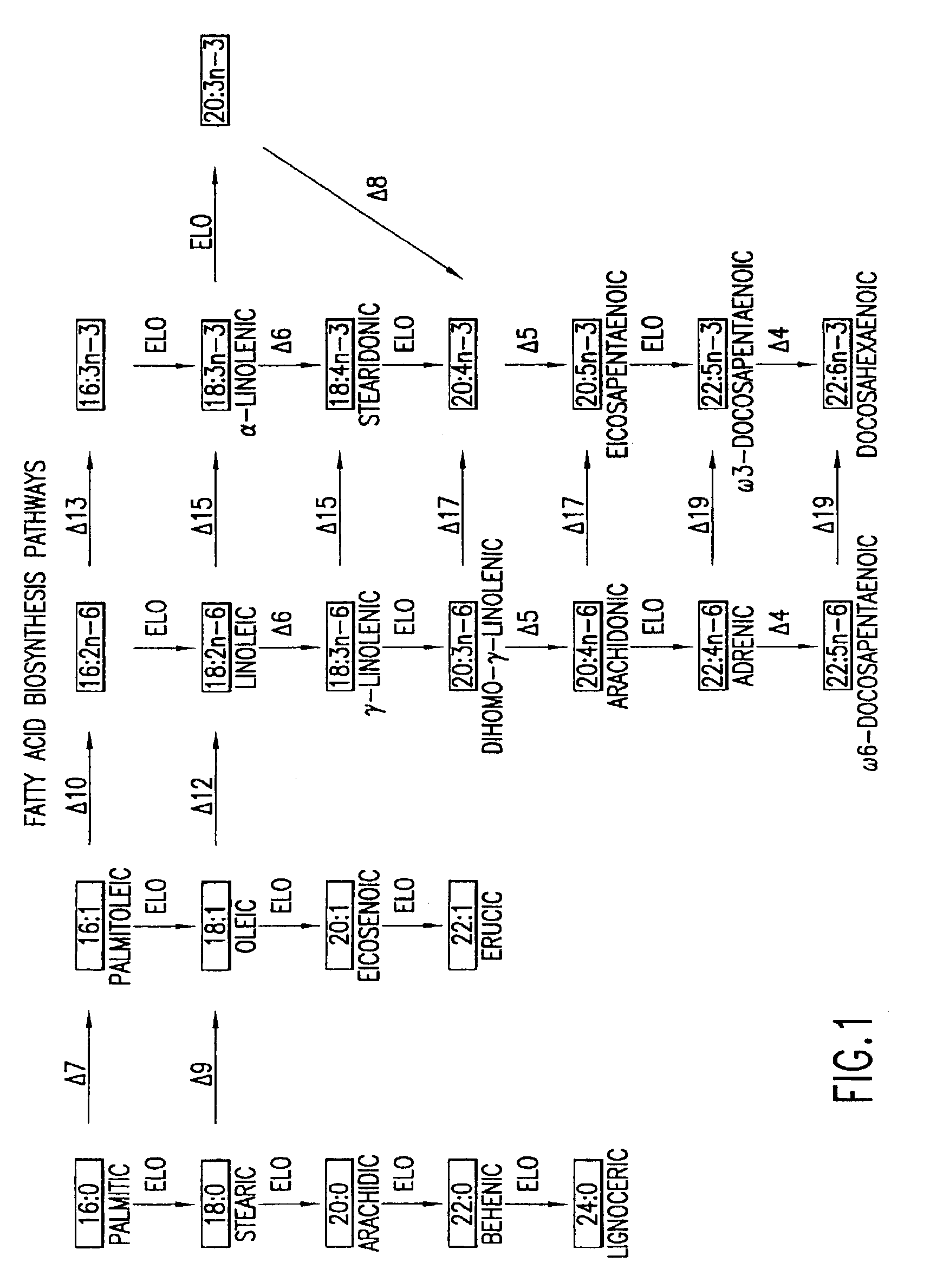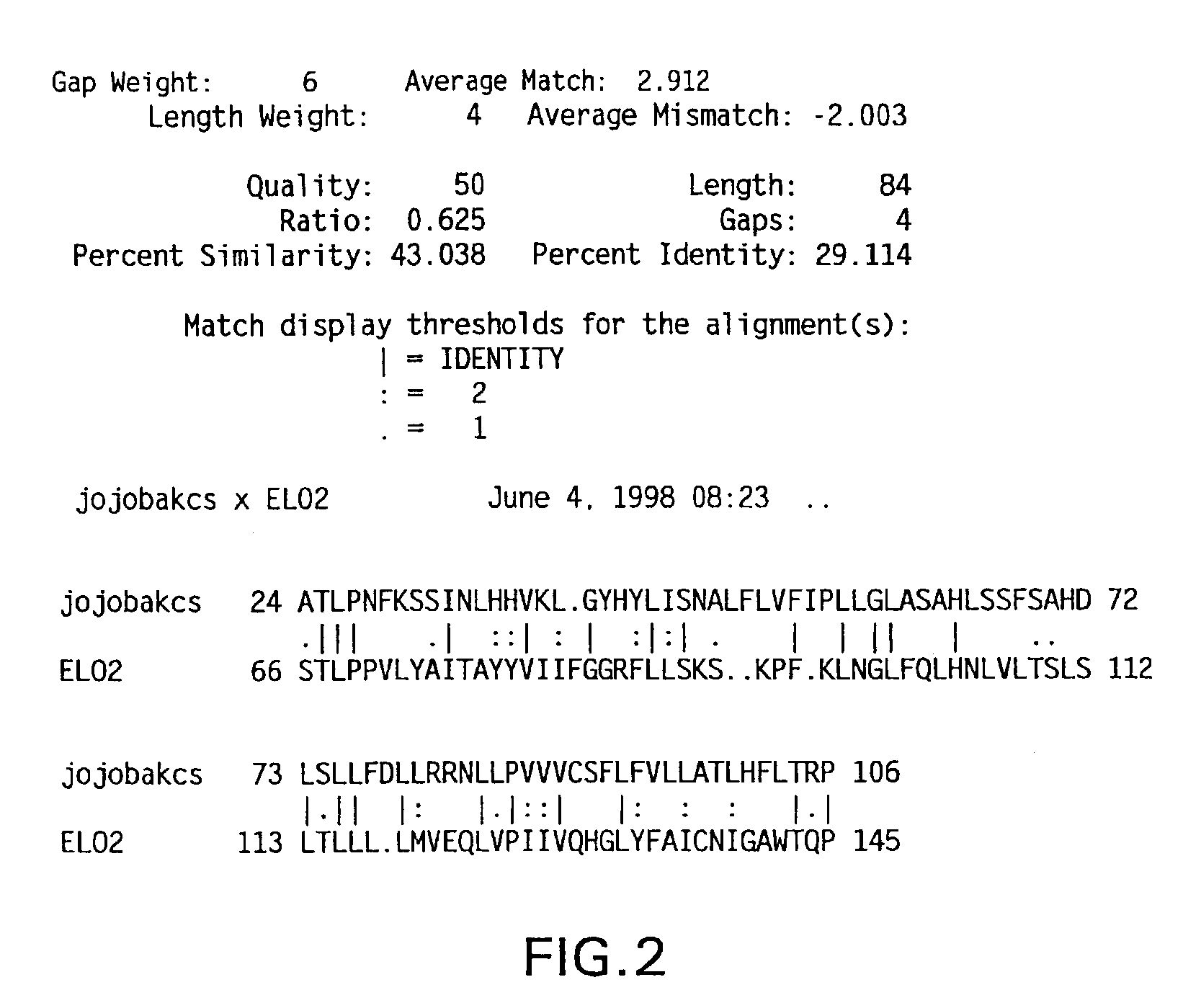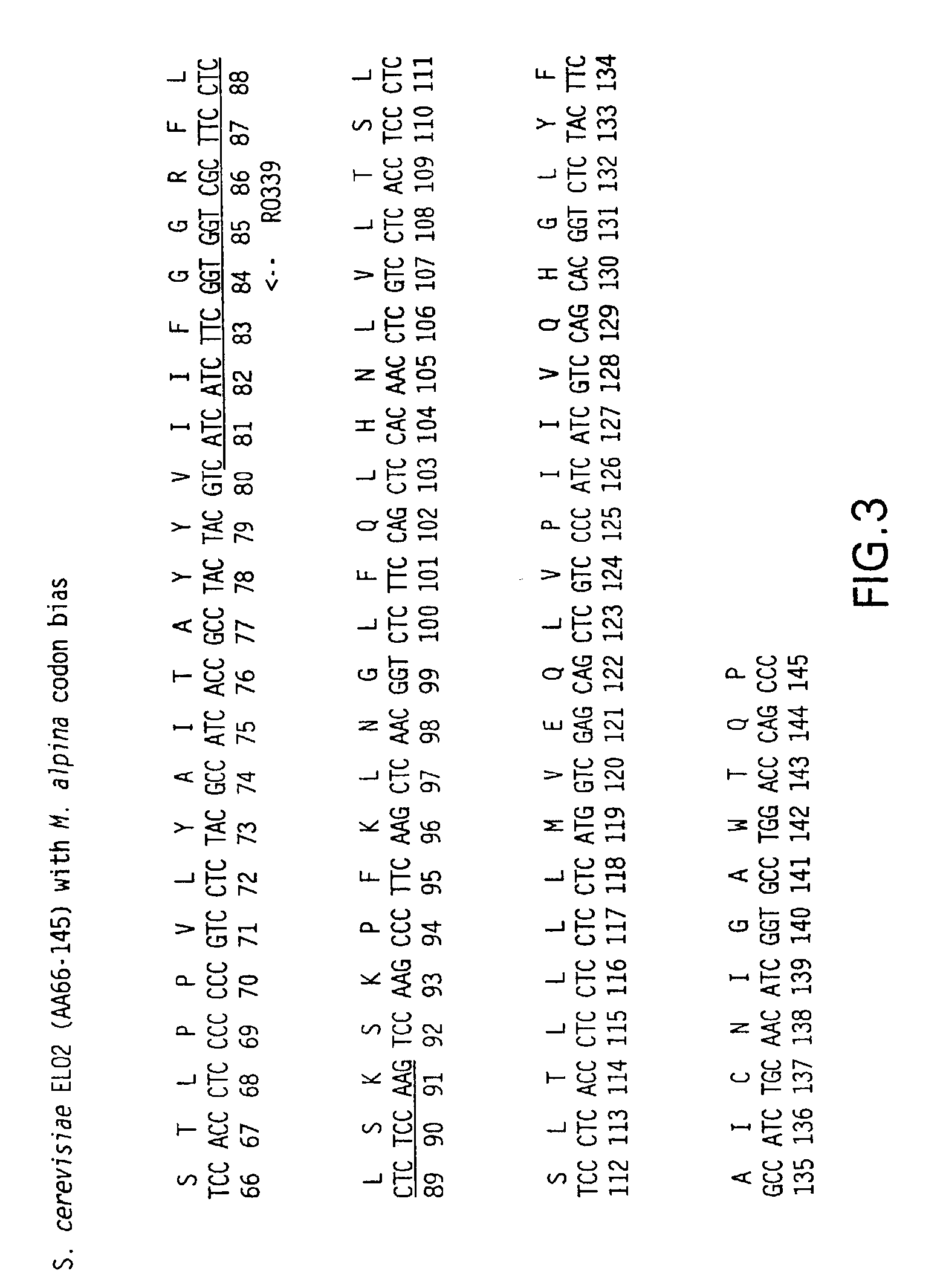Elongase genes and uses thereof
a technology of elongase genes and genes, applied in the field of elongase genes, can solve the problems of substrate-specific step but also rate-limiting step
- Summary
- Abstract
- Description
- Claims
- Application Information
AI Technical Summary
Benefits of technology
Problems solved by technology
Method used
Image
Examples
example i
Determination of Codon Usage in Mortierella alpina
[0171]The 5′ end of 1000 random cDNA clones were sequenced from Mortierella alpina cDNA library. The sequences were translated in six reading frames using GCG (Genetics Computer Group (Madison, Wis.)) with the FastA algorithm (Pearson and Lipman, Proc. Natl. Acad. Sci. USA 85:2444-2448 (1988)) to search for similarity between a query sequence and a group of sequences of the same type (nucleic acid or protein), specifically with the Swissprot database (GeneBio, Geneva, Switzerland). Many of the clones were identified as a putative housekeeping gene based on protein sequence homology to known genes. Twenty-one M. alpina cDNA sequences which matched with known, housekeeping genes in the database were selected (see Table 1 below). M. alpina codon bias table (see Table 2) was generated based on these 21 sequences as well as the full length M. alpina Δ5- (see FIG. 18), Δ6-, and Δ12-desaturase sequences. Since the FastA alignment between t...
example ii
Cloning of a Full-length Elongase-like cDNA from M. alpina
[0174]The β-ketoacyl-coenzyme A synthase (KCS) from jojoba and the Saccharomyces cerevisiae elongase (ELO2) were aligned to determine an area of amino acid homology (see FIG. 2). The codon bias was applied to the area of sequence corresponding to the homologous amino acids between the two elongases, and primers were designed based on this biased sequence (see FIG. 3). The cDNA was excised from the M11 M. alpina cDNA library (Knutzon et al., J. Biol. Chem. 273:29360-29366 (1998)), which contains approximately 6×105 clones with an average insert size of 1.1 Kb. The excised cDNA was amplified with internal primer RO339 (5′-TTG GAG AGG AGG AAG CGA CCA CCG AAG ATG ATG-3′)(SEQ ID NO:63) and a vector forward primer RO317 (5′-CAC ACA GGA AAC AGC TAT GAC CAT GAT TAC G-3′)(SEQ ID NO:64). Polymerase Chain Reaction (PCR) was carried out in a 100 μl volume containing: 300 ng of excised M. alpina cDNA library, 50 pmole each primer, 10 μl ...
example iii
Expression of M. alpina Elongase cDNA in Baker's Yeast
[0177]The constructs pRAE-5, and pRAE-6 were transformed into S. cerevisiae 334 (Hoveland et al., Gene 83:57-64 (1989)) and screened for elongase activity. The plasmid pCGN7875 (Calgene LLC, Davis, Calif.) containing jojoba KCS gene in pYES2 vector (Invitrogen Corp., Carlsbad, Calif.) was used as a positive control. The substrate used to detect elongase activity in M. alpina elongase (MAELO) was GLA and that in jojoba KCS was oleic acid (OA). The negative control strain was S. cerevisiae 334 containing pYX242 vector. The cultures were grown for 40-48 hours at 25° C., in selective media (Ausubel et al., Short Protocols in Molecular Biology, Ch. 13, p. 3-5 (1992)), in the presence of a particular substrate. The expression of the jojoba KCS gene cloned in pYES2 was under the control of GAL1 promoter, while the promoter in pYX242 is TP1, which is constitutive. Hence, the 334 (pCGN7875) and 334 (pYES2) cultures were induced with galac...
PUM
| Property | Measurement | Unit |
|---|---|---|
| weight percent | aaaaa | aaaaa |
| weight percent | aaaaa | aaaaa |
| volume | aaaaa | aaaaa |
Abstract
Description
Claims
Application Information
 Login to View More
Login to View More - R&D
- Intellectual Property
- Life Sciences
- Materials
- Tech Scout
- Unparalleled Data Quality
- Higher Quality Content
- 60% Fewer Hallucinations
Browse by: Latest US Patents, China's latest patents, Technical Efficacy Thesaurus, Application Domain, Technology Topic, Popular Technical Reports.
© 2025 PatSnap. All rights reserved.Legal|Privacy policy|Modern Slavery Act Transparency Statement|Sitemap|About US| Contact US: help@patsnap.com



